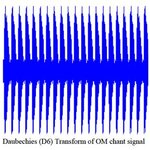
Can people tell how appetizingly fresh a cabbage is, just by looking at photos of the leaves? In 2010, a team of investigators from four prestigious Japanese research institutes (along with The Japan Society for the Promotion of Science) set up a series of experiments to find out. Using a set of 32hr. time-lapse of photos of cabbage leaves (see picture below) they asked experimental participants to rate the featured cabbages according to how fresh (or not-so-fresh) they looked. When the results had been analysed, a clearcut pattern emerged from the data . . .
“…participants could…





